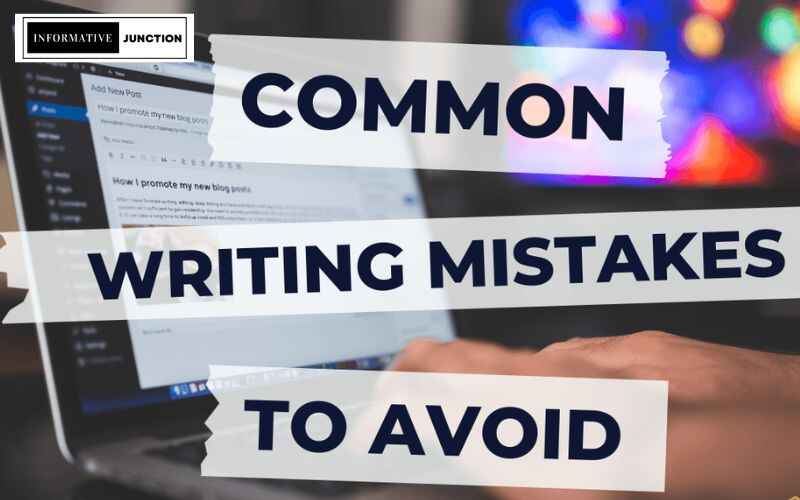As a content creator, it’s essential to understand the impact your writing has on your website’s search engine optimization (SEO). Poor content can significantly hinder your efforts to rank higher in search engine results, ultimately limiting your online visibility and potential for attracting qualified leads. In this blog post, we’ll explore 20 common content writing mistakes that can negatively affect your SEO, and provide practical solutions to help you improve your content strategy.
1. Lack of Keyword Research
Failing to conduct thorough keyword research is one of the most common mistakes in content writing. Without understanding the search terms your target audience is using, it becomes challenging to create content that resonates with them and ranks well in search engines.
Solution: Invest time in researching relevant keywords, including long-tail and conversational keywords, to ensure your content aligns with your audience’s search intent.
2. Thin or Duplicate Content
Creating content that is too short, lacking in substance, or highly similar to existing content on your website or the internet can hurt your SEO performance.
Solution: Aim for in-depth, informative content that provides value to your readers. Avoid copying or reusing content from other sources without proper attribution.
3. Lack of Originality
Regurgitating information that is readily available elsewhere on the web will not help you stand out. Your content needs to be unique, insightful, and offer a fresh perspective.
Solution: Conduct thorough research, synthesize information from multiple sources, and add your own unique analysis and insights to create truly original content.
4. Poor Content Structure
Disorganized and poorly structured content can make it difficult for both readers and search engines to navigate and understand your content.
Solution: Implement a clear and logical content structure, using headings, subheadings, bullet points, and other formatting elements to improve readability and scanability.
5. Ineffective Title and Meta Descriptions
Your title and meta description are crucial elements that influence click-through rates from search engine results pages (SERPs). Poorly crafted titles and meta descriptions can lead to lower engagement and reduced visibility.
Solution: Craft attention-grabbing, keyword-optimized titles and meta descriptions that accurately reflect the content of your page.
6. Lack of External Linking
Failing to include relevant external links to authoritative sources can hurt your content’s credibility and impact on SEO.
Solution: Incorporate high-quality, relevant external links to support the claims and information you present in your content.
7. Neglecting Internal Linking
Overlooking internal linking opportunities can hinder the flow of link equity and navigation within your website.
Solution: Strategically link to other relevant pages on your website to improve user experience and signal the relevance and interconnectivity of your content to search engines.
8. Inconsistent Formatting and Tone
Inconsistencies in formatting, tone, and voice can make your content feel disjointed and less trustworthy.
Solution: Establish and adhere to a consistent content style guide to ensure a cohesive brand voice and visual presentation across all your content.
9. Lack of Multimedia Elements
Content that solely relies on text can be less engaging and less likely to be shared or ranked highly by search engines.
Solution: Incorporate relevant and high-quality images, videos, infographics, and other multimedia elements to enhance the user experience and signal to search engines that your content is valuable and comprehensive.
10. Failure to Optimize Images and Videos
Neglecting to optimize your multimedia content can result in slower page load times, which can negatively impact user experience and SEO.
Solution: Optimize your images and videos for web performance by compressing file sizes, using appropriate file formats, and adding relevant alt text and captions.
11. Insufficient Content Updating and Maintenance
Outdated or stale content can hurt your credibility and relevance in the eyes of both users and search engines.
Solution: Regularly review and update your content to ensure it remains accurate, relevant, and up-to-date.
12. Lack of Responsiveness
Content that is not optimized for mobile devices can lead to poor user experience and lower search engine rankings.
Solution: Ensure your content is mobile-responsive and provides an seamless experience across all devices.
13. Ignoring Page Speed and Load Times
Slow-loading pages can significantly impact user experience and negatively affect your SEO performance.
Solution: Optimize your website’s technical performance by reducing image and file sizes, minifying CSS and JavaScript, and leveraging browser caching.
14. Failure to Incorporate Semantic Markup
Neglecting to use semantic HTML tags and structured data can make it more difficult for search engines to understand the context and meaning of your content.
Solution: Implement relevant semantic markup, such as header tags, list elements, and schema.org structured data, to enhance the searchability and comprehension of your content.
15. Absence of Accessibility Considerations
Failing to make your content accessible to users with disabilities can negatively impact your SEO, as search engines prioritize accessible content.
Solution: Ensure your content adheres to web accessibility guidelines, such as providing alt text for images, captions for videos, and clear, readable formatting.
16. Overlooking Content Freshness Signals
Search engines favor content that is up-to-date and relevant. Failing to update your content regularly can hurt your rankings.
Solution: Regularly review and update your content, adding new information, insights, and relevant data to maintain its freshness and relevance.
17. Lack of Emotion and Storytelling
Dry, factual content that lacks emotional appeal or a compelling narrative can be less engaging and less likely to be shared or remembered by readers.
Solution: Incorporate elements of storytelling, empathy, and emotion into your content to create a more memorable and shareable experience for your audience.
18. Ignoring User Intent and Search Queries
Creating content that does not align with the search queries and intent of your target audience can result in low engagement and poor rankings.
Solution: Thoroughly research and understand the search intent behind the keywords you’re targeting, and tailor your content to provide the most relevant and helpful information to users.
19. Failure to Optimize for Featured Snippets
Not optimizing your content for featured snippets, a prominent placement in search engine results, can limit your visibility and click-through rates.
Solution: Structure your content to directly answer common questions and queries, using clear headings, lists, and other formatting to increase the chances of your content being featured as a snippet.
20. Lack of Content Promotion and Distribution
Producing high-quality content is only half the battle – effectively promoting and distributing your content is crucial for driving traffic and improving SEO.
Solution: Develop a comprehensive content promotion strategy that includes social media sharing, email marketing, guest posting, and other channels to amplify the reach and impact of your content.
By addressing these 20 common content writing mistakes, you can significantly improve your website’s SEO performance, attract more targeted traffic, and ultimately achieve your business goals. Remember, creating high-quality, user-centric content is the foundation of effective SEO, so make it a priority in your overall digital marketing strategy.
Read More Informative Blogs on Informative Junction




